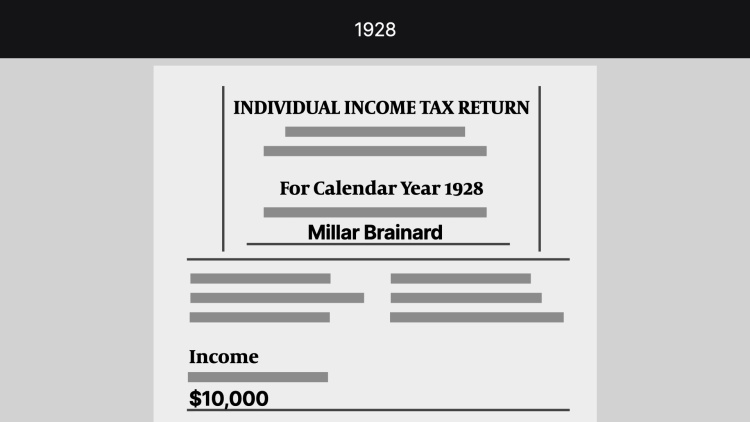Brainard v. Commissioner
United States Court of Appeals for the Seventh Circuit
91 F.2d 880 (1937)

- Written by Christine Raino, JD
Facts
In 1927, Brainard orally declared his intention to impose a trust on any future profits he earned from trading stock in 1928 for the benefit of his wife, children and mother. He also made himself, rather than the trust beneficiaries, financially responsible if he incurred losses from trading stock in 1928. After Brainard earned profits from trading stock in 1928, he took $10,000 of the profits as a trustee’s fee and held the remaining profits in trust for his wife, children and mother. Brainard declared the $10,000 trustee’s fee on his taxes, but the not the portion of the profits he held in trust. The beneficiaries did however report on their respective tax returns the shares of the profits that Brainard held for their benefit. The question before the court was whether Brainard’s oral declaration in 1927 established a trust at that time so that the profits earned in 1928 were reportable on the beneficiaries’ tax returns, or whether the trust did not exist until it was funded with the profits that Brainard earned in 1928 and accordingly the profits were reportable on Brainard’s tax return.
Rule of Law
Issue
Holding and Reasoning (Sparks, J.)
What to do next…
Here's why 907,000 law students have relied on our case briefs:
- Written by law professors and practitioners, not other law students. 47,100 briefs, keyed to 996 casebooks. Top-notch customer support.
- The right amount of information, includes the facts, issues, rule of law, holding and reasoning, and any concurrences and dissents.
- Access in your classes, works on your mobile and tablet. Massive library of related video lessons and high quality multiple-choice questions.
- Easy to use, uniform format for every case brief. Written in plain English, not in legalese. Our briefs summarize and simplify; they don’t just repeat the court’s language.





